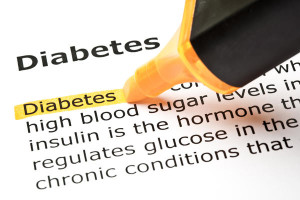Coordination of Growing Invokana Litigation Requested
 As more plaintiffs continue to file lawsuits against the manufacturer of the diabetes drug Invokana, a request has now been made to coordinate the proceedings into a central court. All of the lawsuits filed thus far are alleging serious injuries after taking Invokana, including heart attack, kidney damage and a dangerous blood condition known as ketoacidosis. Plaintiffs filing these complaints are also claiming that Invokana manufacturer Johnson & Johnson and its Janssen subsidiary failed to warn patients and the medical community about the risks associated with their drug.
As more plaintiffs continue to file lawsuits against the manufacturer of the diabetes drug Invokana, a request has now been made to coordinate the proceedings into a central court. All of the lawsuits filed thus far are alleging serious injuries after taking Invokana, including heart attack, kidney damage and a dangerous blood condition known as ketoacidosis. Plaintiffs filing these complaints are also claiming that Invokana manufacturer Johnson & Johnson and its Janssen subsidiary failed to warn patients and the medical community about the risks associated with their drug.
Motion filed for an Invokana MDL
A motion was filed on September 20 asking the U.S. Judicial Panel on Multidistrict Litigation to consider consolidating Invokana lawsuits into multidistrict litigation. The formation of an MDL would transfer all cases to a single judge, reducing duplicate discovery and conflicting rulings. The MDL would also streamline the early trial proceedings for the convenience of all parties involved.
At this time, there are at least 56 Invokana lawsuits pending in 11 courts across the country and more are expected to be filed in the future. The drug, which was approved by the FDA in 2013 has quickly become a preferred option by doctors and patients alike.
According to the motion filed, the FDA has received multiple reports of kidney damage as a result of using Invokana, which led the agency to issue a stronger warning regarding the risk of this type of injury on the June 2016 label change. That warning was preceded by another label change in May 2015, alerting users to the risk of ketoacidosis, a life-threatening condition that occurs when blood acids known as ketones reach dangerously high levels. Additional warnings were added to the label in August 2016, noting that fatal cases of ketoacidosis had been reported with Invokana use.
About Invokana
Invokana belongs to the category of diabetes drugs known as SGLT2 inhibitors, which regulate blood sugar levels by encouraging the body to eliminate extra glucose in urine. Currently, the drugs are only approved for the treatment of type 2 diabetes, but some doctors prescribe them off-label for the treatment of type 1 diabetes as well. While these drugs can be very effective in maintaining safer blood sugar levels, other side effects that sometimes accompany the drugs can be very dangerous and even life threatening for some individuals. Other drugs in this category include Invokamet and Farxiga.
In the motion filed with the U.S. Judicial Panel on Multidistrict Litigation, it is claimed that defendants actually knew about at least some of the dangers associated with Invokana even while they were marketing their drug to the general public. The motion goes as far as to allege the defendants actually concealed information about the dangers, even while continuing to aggressively market their drug to diabetes patients and their physicians.
Those filing the motion have requested the centralization be assigned to the District Court of New Jersey in Trenton, where 36 of the Invokana lawsuits are already pending. All of those cases are before Judge Brian R. Martinotti, a federal judge the motion notes has extensive experience with complex litigation.
- FDA, FDA Drug Safety Communication: FDA Warns that SGLT2 Inhibitors for Diabetes may Result in a Serious Condition of Too Much Acid in the Blood, http://www.fda.gov/Drugs/DrugSafety/ucm446845.htm
- Medscape, SGLT2 Inhibitor Diabetes Drugs may Cause Ketoacidosis: FDA, http://www.medscape.com/viewarticle/844754
- Mayo Clinic, Diabetic Ketoacidosis, http://www.mayoclinic.org/diseases-conditions/diabetic-ketoacidosis/basics/symptoms/con-20026470
- FDA, FDA Drug Safety Communication: FDA Strengthens Kidney Warnings for Diabetes Medicines Canagliflozin (Invokana, Invokamet) and Dapagliflozin (Farxiga, Xigduo SR), http://www.fda.gov/Drugs/DrugSafety/ucm505860.htm


 Resources
Resources
 Resources
Resources
